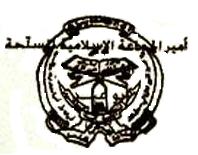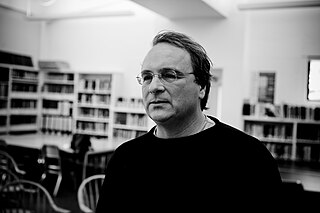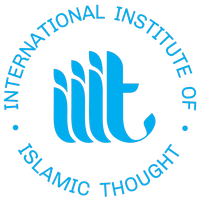Related Research Articles

Samuel Phillips Huntington was an American political scientist, adviser, and academic. He spent more than half a century at Harvard University, where he was director of Harvard's Center for International Affairs and the Albert J. Weatherhead III University Professor.

The al-Shifapharmaceutical factory in Kafouri, Khartoum North, Sudan, was constructed between 1992 and 1996 with components imported from Germany, India, Italy, Sweden, Switzerland, Thailand and the United States. It was opened on 12 July 1997 and bombed by the United States on 20 August 1998. The industrial complex was composed of four buildings. It was the largest pharmaceutical factory in Khartoum and employed over 300 workers, producing medicine both for human and veterinary use.

The Armed Islamic Group was one of the two main Islamist insurgent groups that fought the Algerian government and army in the Algerian Civil War.

The New World Order (NWO) is a term used in several conspiracy theories which hypothesize a secretly emerging totalitarian world government. The common theme in conspiracy theories about a New World Order is that a secretive power elite with a globalist agenda is conspiring to eventually rule the world through an authoritarian one-world government—which will replace sovereign nation-states—and an all-encompassing propaganda whose ideology hails the establishment of the New World Order as the culmination of history's progress. Many influential historical and contemporary figures have therefore been alleged to be part of a cabal that operates through many front organizations to orchestrate significant political and financial events, ranging from causing systemic crises to pushing through controversial policies, at both national and international levels, as steps in an ongoing plot to achieve world domination.

There are various conspiracy theories that attribute the preparation and execution of the September 11 attacks against the United States to parties other than, or in addition to, al-Qaeda. These include the theory that high-level government officials had advance knowledge of the attacks. Government investigations and independent reviews have rejected these theories. Proponents of these theories assert that there are inconsistencies in the commonly accepted version, or that there exists evidence that was ignored, concealed, or overlooked.

Michel Chossudovsky is a Canadian economist and author. He is professor emeritus of economics at the University of Ottawa and the president and director of the Centre for Research on Globalization (CRG), which runs the website globalresearch.ca, founded in 2001, which publishes falsehoods and conspiracy theories. Chossudovsky has promoted conspiracy theories about 9/11.

Robert Booker Baer is an American author and a former CIA case officer who was primarily assigned to the Middle East. He is Time's intelligence columnist and has contributed to Vanity Fair, The Wall Street Journal, and The Washington Post. Baer speaks eight languages, won the CIA Career Intelligence Medal and is a frequent commentator and author about issues related to international relations, espionage, and U.S. foreign policy. He hosted the History reality television series Hunting Hitler. He is an Intelligence and Security Analyst for CNN. His book See No Evil was adapted by the director Stephen Gaghan and used as the basis for the film Syriana, with George Clooney playing Baer's character.

Thomas Homer-Dixon is a Canadian political scientist and author who researches threats to global security. He is the founder and Executive Director of the Cascade Institute at Royal Roads University in Victoria, British Columbia. He is the author of seven books, the most recent being Commanding Hope: The Power We Have to Renew a World in Peril.

The International Institute of Islamic Thought (IIIT) is a privately held non-profit organization in the United States founded by Ismail al-Faruqi and Anwar Ibrahim. It was established as a non-profit 501(c)(3) non-denominational organization in 1981, and is based in Herndon, Virginia. The stated objective of the institute is to revive and reform Islamic thought through research on advancing education in Muslim societies, and publishing, translating and teaching this work.

Douglas Murray is a British neoconservative political commentator, cultural critic, and journalist.
Richard Higgins was an American counter-terrorism analyst who served as the Director for Strategic Planning of the National Security Council in the Trump administration in 2017. He was removed by National Security Adviser H.R. McMaster after warning in a memo of a deep state plot to remove the president.

A global catastrophic risk or a doomsday scenario is a hypothetical event that could damage human well-being on a global scale, even endangering or destroying modern civilization. An event that could cause human extinction or permanently and drastically curtail humanity's existence or potential is known as an "existential risk".

Bruce R. Hoffman is an American political analyst. He specializes in the study of terrorism, counter-terrorism, insurgency, and counter-insurgency. Hoffman serves as the Shelby Cullom and Kathryn W. Davis Senior Fellow for Counterterrorism and Homeland Security on the Council on Foreign Relations, and is a professor at the School of Foreign Service of Georgetown University. In addition, he is the Professor Emeritus and Honorary Professor of Terrorism Studies at the University of St Andrews, and is the George H. Gilmore Senior Fellow at the U.S. Military Academy's Combating Terrorism Center. He identifies as a Zionist.
Alternative theories have been proposed regarding the Oklahoma City bombing. These theories reject all, or part of, the official government report. Some of these theories focus on the possibility of additional co-conspirators that were never indicted or additional explosives planted inside the Murrah Federal building. Other theories allege that government employees and officials, including US President Bill Clinton, knew of the impending bombing and intentionally failed to act on that knowledge. Further theories allege that the bombing was perpetrated by government forces to frame and stigmatize the militia movement, which had grown following the controversial federal handlings of the Ruby Ridge and Waco incidents, and regain public support. Government investigations have been opened at various times to look into the theories.

Deep Green Resistance (DGR) is a radical environmental movement that perceives the existence of industrial civilization itself as the greatest threat to the natural environment, and calls for its dismantlement and a return to a pre-agricultural level of technology. Although DGR operates as an aboveground group, it calls on others to use underground and violent tactics such as attacks on infrastructure or assassination. A repeated claim in DGR literature is that acts of sabotage could cause a cascading effect and lead to the end of civilization. DGR and far-right ecofascists use similar accelerationist and anti-majoritarian tactics, seeking systemic collapse.
Qatar News Agency is a state-run Qatari news agency.
Richard Martin Donne Barrett CMG OBE is a former British diplomat and intelligence officer now involved in countering violent extremism. Barrett is a recognised global expert on terrorism who frequently appears as a panellist in related conferences and whose commentary is regularly featured in the press.
Counter-jihad, also known as the counter-jihad movement, is a self-titled political current loosely consisting of anti-Muslim authors, bloggers, think tanks, street movements and so on linked by beliefs that view Islam not as a religion but as an ideology that constitutes an existential threat to Western civilization. Consequently, counter-jihadists consider all Muslims as a potential threat, especially when they are already living within Western boundaries. Western Muslims accordingly are portrayed as a "fifth column", collectively seeking to destabilize Western nations' identity and values for the benefit of an international Islamic movement intent on the establishment of a caliphate in Western countries. The counter-jihad movement has been variously described as anti-Islamic, Islamophobic, inciting hatred against Muslims, and far-right. Influential figures in the movement include the bloggers Pamela Geller and Robert Spencer in the US, and Geert Wilders and Tommy Robinson in Europe.

Richard Seymour is a Northern Irish author, commentator and owner of the blog Lenin's Tomb. His books included The Meaning of David Cameron (2010), Unhitched (2013), Against Austerity (2014) and Corbyn: The Strange Rebirth of Radical Politics (2016). Seymour was born in Ballymena, Northern Ireland to a Protestant family, and currently lives in London. A former member of the Socialist Workers Party, he left the organisation in March 2013. He completed his PhD in sociology at the London School of Economics under the supervision of Paul Gilroy. His thesis, dated 2016, was titled Cold War anticommunism and the defence of white supremacy in the southern United States. In the past he has written for publications such as The Guardian and Jacobin.

Robert David Steele was an American case officer for the Central Intelligence Agency, co-founder of the United States Marine Corps Intelligence Activity and conspiracy theorist.
References
- ↑ "Nafeez Ahmed". Nafeez Ahmed. Retrieved 25 May 2019.
- ↑ "Nafeez Ahmed is creating a journalism framework for inner and outer transformation". Patreon. Retrieved 25 May 2019.
- ↑ "INSURGE intelligence". Medium.
- ↑ "Contributor page". The Guardian.
- ↑ "Nafeez Ahmed". Middle East Eye. Retrieved 8 July 2015.
- ↑ "System Shift column". Motherboard. Vice. Retrieved 8 July 2015.
- ↑ "Nafeez Ahmed, Author at Byline Times". Byline Times. Retrieved 8 December 2021.
- ↑ "Documentary – Grasp the Nettle – Films". graspthenettlefilm. Retrieved 25 May 2019.
- ↑ "Nafeez Ahmed - Anglia Ruskin University - Academia.edu". anglia.academia.edu. Retrieved 25 May 2019.
- ↑ "A review of the work of Nafeez Ahmed" (PDF). The Schumacher Institute.
- ↑ "Who we are". Declassified UK . Daily Maverick . Retrieved 7 February 2021.
- ↑ "NAFEEZ AHMED, Author at Declassified Media Ltd". Declassified UK. Retrieved 22 March 2022.
- 1 2 "Dr Nafeez Ahmed". University of Sussex. Archived from the original on 10 September 2015.
- ↑ Ahmed, Nafeez. The Violence of Empire: The Logic and Dynamic of Strategies of Violence and Genocide in Historical and Contemporary Imperial Systems . Retrieved 25 May 2019– via academia.edu.
- ↑ "Failing States - ARU". aru.ac.uk. Retrieved 25 May 2019.
- ↑ "IPRD » The Institute". iprd.org.uk. Retrieved 25 May 2019.
- ↑ "IPRD » Research". iprd.org.uk. Retrieved 25 May 2019.
- ↑ "About Perennial". perennial. Retrieved 25 May 2019.
- ↑ "Western Muslim scholars launch Islamic website to combat misogynist theology #IWD2016". pressat.co.uk. Retrieved 25 May 2019.
- ↑ Vidal, Gore (27 October 2002). "The Enemy Within". The Observer– via Nafeez Ahmed's website.
- ↑ "9/11 Commission Materials". National Archives. 9 November 2010. Retrieved 25 May 2019.
- ↑ "Yasmin Alibhai-Brown: A depressing saga of secrets, lies and medieval horrors" . The Independent. 23 February 2009. Archived from the original on 18 June 2022. Retrieved 25 May 2019.
- ↑ "MBR: Reviewer's Bookwatch, December 2005". www.midwestbookreview.com. Retrieved 29 March 2021.
- ↑ "The 'Nasa collapse study' controversy: some thoughts". The Cutting Edge. 26 March 2014. Retrieved 17 December 2015.
- ↑ Poole, Steven (1 January 2011). "Et cetera: non-fiction roundup". The Guardian.
- ↑ Jeff Vail, 'A review of Nafeez Ahmed's latest book', The Oil Drum, 13 November 2010, http://www.theoildrum.com/node/7110
- ↑ Robert Drury King, 'Review', Marx & Philosophy Review of Books, 2011, http://marxandphilosophy.org.uk/reviewofbooks/reviews/2011/377
- ↑ "The Crisis of Civilization". crisisofcivilization.com. Archived from the original on 27 March 2015. Retrieved 1 October 2015.
- ↑ Yezza, Hicham (28 November 2011). "Review: The Crisis of Civilization". Ceasefire.
- ↑ "The 1000: London's most influential people 2014 - Campaigners". Evening Standard. London. 16 October 2014.
- ↑ "The Progress 1000: London's most influential people 2015 - Campaigners". Evening Standard. London. 16 September 2015.
- ↑ Gelder, Sarah van. "Why the Corporate Media's Climate Change Censorship is Only Half the Story". Yes! Magazine.
- ↑ "10 stories the mainstream media doesn't want you to read". 26 November 2014.
- ↑ Ahmed, Nafeez Mosaddeq (2011). "The international relations of crisis and the crisis of international relations: From the securitisation of scarcity to the militarisation of society". Global Change, Peace & Security. 23 (3): 335–355. doi:10.1080/14781158.2011.601854. S2CID 153625754.
- ↑ "Congressional Record".
- ↑ Oborne, Peter (2018). "We do not Report Fairly on Muslims". British Journalism Review. 29: 29–34. doi: 10.1177/0956474818764596 .
- ↑ Hitchens, Christopher (February 2010). "Vidal Loco". Vanity Fair.
- ↑ "Nafeez Ahmed responds to Cristopher Hitchens". Vanity Fair. February 2010.
- ↑ Ahmed, Nafeez (7 February 2010). "Hitchens has no clothes" . The Independent on Sunday. London. Archived from the original on 18 June 2022.
- ↑ Kate Youde "Christopher Hitchens attacks Gore Vidal for being a 'crackpot'", The Independent on Sunday, 7 February 2010
- ↑ Nafeez Ahmed "Nasa-funded study: industrial civilisation headed for 'irreversible collapse'?", The Guardian, 14 March 2014
- 1 2 3 Keith Kloor "Collide-A-Scape: About that Popular Guardian Story on the Collapse of Industrial Civilization", Discover, 14 March 2014
- ↑ Keith Kloor "Judging the Merits of a Media-Hyped ‘Collapse’ Study", Discover, 21 March 2014
- ↑ Nafeez Ahmed "Did Nasa fund 'civilisation collapse' study, or not?", The Guardian, 21 March 2014
- ↑ "The Well-Intentioned, Misguided Eco-Doomers". Collide-a-Scape. 20 December 2013. Retrieved 1 October 2015.
- ↑ Nafeez Ahmed "The global Transition tipping point has arrived - vive la révolution", The Guardian, 18 March 2014
- ↑ Canadian journalist Jonathan Kay included Ahmed among the "who’s-who of the most influential Canadian, American and British 9/11 Truth conspiracy theorists."University of Lethbridge pays student $7,714 to pursue 9/11 conspiracy theories. National Post
- ↑ "9/11, conspiracy theory, and bullshit mongers". Nafeez Ahmed. 4 August 2015. Retrieved 28 March 2021.
- ↑ "9/11 Commission Materials". National Archives. 9 November 2010. Retrieved 28 March 2021.
- ↑ deHaven-Smith, Lance (1 February 2010). "Beyond Conspiracy Theory: Patterns of High Crime in American Government". American Behavioral Scientist. 53 (6): 795–825. doi:10.1177/0002764209353274. ISSN 0002-7642. S2CID 145129338.
- ↑ Witt, Matthew T.; deHaven-Smith, Lance (1 October 2008). "Conjuring the Holographic State: Scripting Security Doctrine for a (New) World of Disorder". Administration & Society. 40 (6): 547–585. doi:10.1177/0095399708321682. ISSN 0095-3997. S2CID 146310695.
- ↑ Witt, Matthew T.; Kouzmin, Alexander (1 February 2010). "Sense Making Under "Holographic" Conditions: Framing SCAD Research". American Behavioral Scientist. 53 (6): 783–794. doi:10.1177/0002764209353272. ISSN 0002-7642. S2CID 142928366.
- ↑ "Interrogating 9/11". Nafeez Ahmed. 11 September 2006. Retrieved 28 March 2021.
- 1 2 3 "9/11, conspiracy theory, and bullshit mongers". Nafeez Ahmed. 4 August 2015. Retrieved 22 March 2021.
- ↑ "Hitchens Has No Clothes: A response to Vidal Loco" . The Independent. 21 April 2017. Archived from the original on 18 June 2022. Retrieved 28 March 2021.
- ↑ "Our terrorists". New Internationalist. 1 October 2009. Retrieved 28 March 2021.